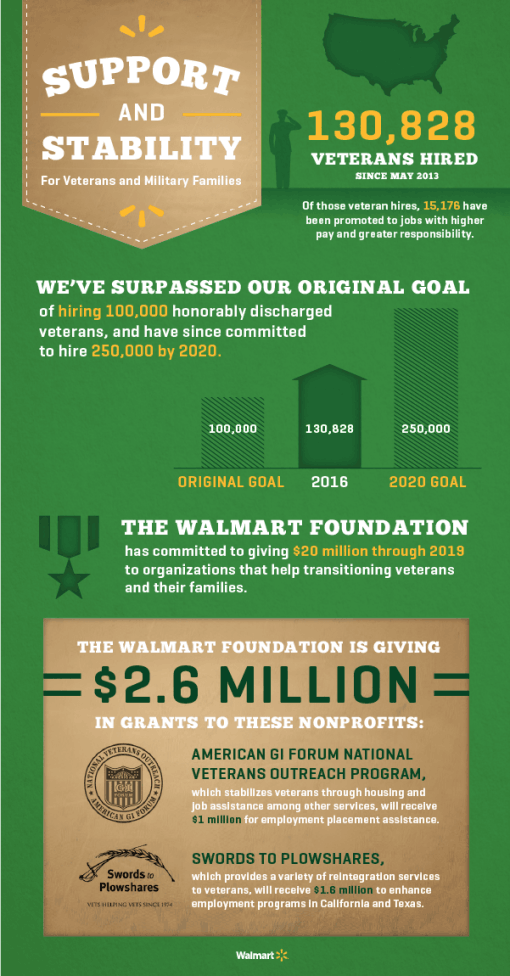Did you know that according to a recent report, unemployment among post-9/11 veterans hovers around 10 percent, compared with 6.8 percent among non-veterans? Unfortunately, much of this disparity in employment is due to many employers’ inhibitions about hiring vets.
A host of preconceptions riddle many human resources departments and hiring managers when it comes to employing military veterans. Presumptions and stereotype-driven apprehensions actually prevent some employers from tapping an employee market that can not only strengthen an employer’s workforce but also accrue payroll-based tax credits for hiring vets.
Luckily, a lot of the apprehensions and misconceptions about veterans in the workplace are actually debunked once the data and other statistics are examined. Some of these misconstrued challenges, accompanied by the true facts, follow.
 Post-traumatic stress disorder (PTSD) is too much of a risk. About one in three employers consider PTSD an inhibitor to hiring vets, according to a survey from the Society for Human Resource Management (SHRM). Many assume the majority of military personnel since 9/11 suffer PTSD, inferring that most veterans are prone to mental or, at the very least, social impediments. In truth, however, only 7 percent of post-9/11 vets experience PTSD, according to the U.S. Army. Furthermore, if a new hire indeed suffers from PTSD, the syndrome can often be accommodated and managed as easily as moving the vet’s work station to face a door, window, or garden. The average cost of accommodating an injured veteran is approximately $500, according to the SHRM survey.
Post-traumatic stress disorder (PTSD) is too much of a risk. About one in three employers consider PTSD an inhibitor to hiring vets, according to a survey from the Society for Human Resource Management (SHRM). Many assume the majority of military personnel since 9/11 suffer PTSD, inferring that most veterans are prone to mental or, at the very least, social impediments. In truth, however, only 7 percent of post-9/11 vets experience PTSD, according to the U.S. Army. Furthermore, if a new hire indeed suffers from PTSD, the syndrome can often be accommodated and managed as easily as moving the vet’s work station to face a door, window, or garden. The average cost of accommodating an injured veteran is approximately $500, according to the SHRM survey.
Veterans want to depend on orders rather than exhibit self-initiative. Employers tend to regard vets as too order-driven and therefore, too rigid, to the point of waiting for directives rather than intuitively proceeding with a project, according to the SHRM survey. However, employers such as Home Depot prefer to hire vets because they are dealt a variety of different obstacles to overcome in their training and in the battle zones. Their ability to adapt and think on their feet appeals to a lot of employers including Home Depot, according to a Fortune magazine report.
Qualifications: Lost in translation. Hiring managers can more readily understand a resume showing a college degree in the related field of employment. But, they are challenged to interpret what an ordinance specialist or petty officer brings to the civilian position at hand. The interviewee can help an interviewer understand the significance of their military experience by spelling out character attributes requisite to their military title. For example, many companies lean toward hiring a U.S. Marine vet simply for the fact that they are gaining an employee steeped in honor, discipline, and a sense of duty. It is incumbent on veteran applicants to translate their military skills into something understandable on their resumes, but also for hiring managers to ask the right questions, such as:
–“Can you tell me about the type of training and education you received while in the military?”
–“Were you involved in day-to-day management of personnel or supplies? How many people did you supervise?”
The threat of calls to duty. Many employers believe that a hired veteran will inevitably be called back to duty, leaving a company or project team shorthanded. However, for the most part, once someone is out of the military long enough to seek and accept employment, that veteran is out for good, according to the Fortune magazine report. The current downsizing of the military also allays any fears of future deployments that employers may harbor.
Employers Reap Tax Credits for Hiring Vets
If these facts alone do not persuade a potential employer to consider hiring veterans, the federal government tries its best to seal the deal with its Returning Heroes Tax Credit. This incentive program provides a
tax credit amounting to 40 percent of the first $6,000 in wages an employer pays to a veteran. And a long-term incentive doles a credit of about 40 percent of the first $14,000 paid in wages. The Wounded Warrior Tax Credit doubles the tax credit for long-term unemployed veterans with service-connected disabilities. The list of credits goes on and can be viewed by visiting the White House Business Council website.
Therefore, even though hiring veterans may present a few challenges in the workplace, the benefits can clearly override the accommodations that may need to put in place. While these men and women have successfully served their country, their job is not done. They can also serve a company well if given the opportunity.
from https://drugtestsinbulk.com/blog/hiring-veterans-common-misconceptions-debunked/
from
http://drugtestsinbulk0.tumblr.com/post/151757294229

No comments:
Post a Comment